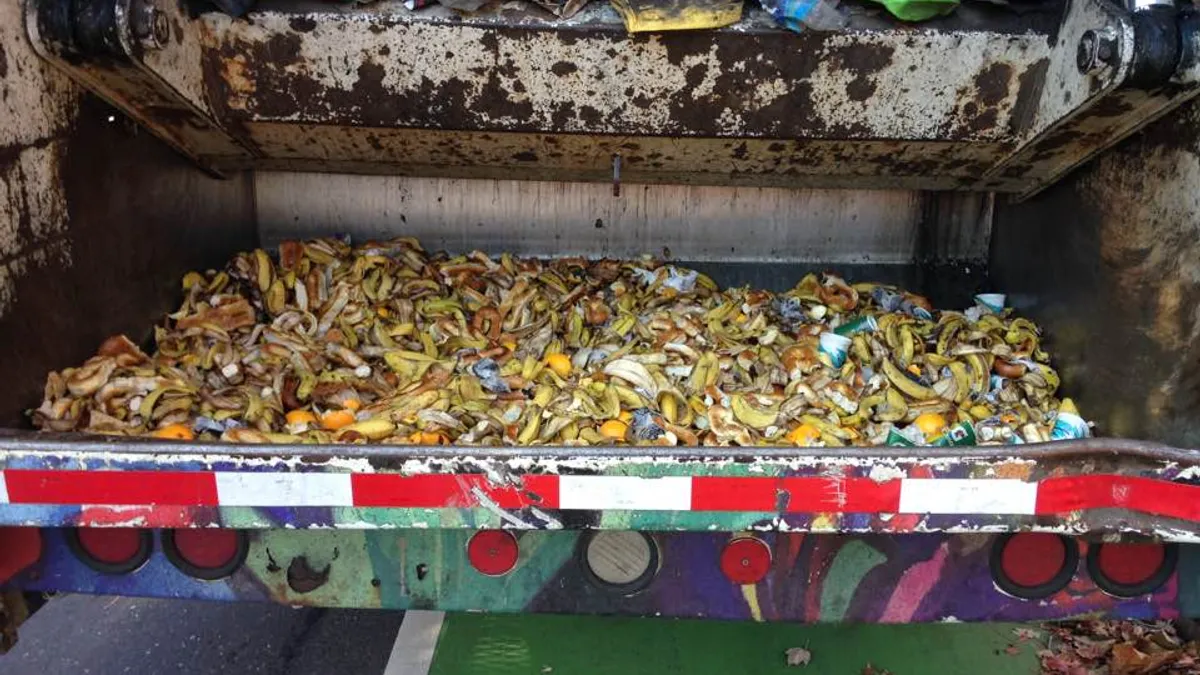Dive Brief:
- Philadelphia's Department of Parks and Recreation (PPR) recently issued a request for proposals for a public-private partnership to collect and process food waste from up to 156 sites around the city. The winning bidder would be responsible for equipping a municipal property to compost food waste from PPR and any outside sources.
- The city anticipates nearly 150 tons of food waste could be captured from PPR sites per year. The contractor would be allowed to sell compost produced at the facility, provided at least 25%, or 165 cubic yards (whichever is greater), goes to PPR.
- This contract would be valued at $1, given the city is providing access to land, utilities and feedstock. Under current terms, the contract would run for one year with the option of three one-year extensions at the city's discretion. Collections and operations could begin as soon as spring 2020.
Dive Insight:
Food waste is expected to become a growing priority in Philadelphia's efforts to achieve "zero waste" by 2035. During the summer, PPR launched a new Community Composting Network to help local partners establish more than a dozen drop-off and compost sites around the city. That project is expected to launch as soon as November. While the community composting work is largely geared toward residents, this new PPR project has the potential to capture institutional and possibly commercial material.
The idea has long been a priority for Zero Waste & Litter Director Nic Esposito, formerly of PPR, who sees organics recycling as "the biggest thing missing from our stream right now." The project also involves close coordination with Pennsylvania's Department of Environmental Protection to create a first-of-its-kind urban composting permit.
"If it proves to be successful, it could be a statewide permit," Esposito told Waste Dive. "It would be great for Reading to have a facility like this, and Erie and Harrisburg and Pittsburgh."
PPR wants a contractor to supply and maintain all bins, handle all collections, take a lead role in public education and be responsible for managing contaminants or residuals. Optional services such as a waste characterization study and annual audits will also be factors in the selection process.
While a contractor could profit from selling the majority of finished compost, and potentially charge for food scraps from outside the PPR network, the initial one-year contract term may be a notable consideration for potential bidders. PPR notes it's currently seeking approval from the Philadelphia City Council to extend the initial term to four years, with three optional two-year extensions. Because the city envisions it taking as many as five years to scale up collection for all 156 PPR sites, that change could be beneficial.
These types of public-private partnerships are seen as a useful alternative to the high cost of financing any municipally-owned infrastructure, both for Philadelphia and others. Boston recently embarked on a similar approach by asking for new ideas around organics collection and processing solutions this summer.
Philadelphia previously prioritized the use of in-sink devices under former Mayor Michael Nutter and has seen some talk of larger digestion projects in recent years, but remains light on organics processing infrastructure. A recently signed disposal contract with Waste Management also includes potential to "pilot the extraction of organics for beneficial use."
Esposito sees this latest effort as one that could yield many more urban composting facilities in the years ahead.
"I would love to see [possibly] 10 sites around the city that are just small businesses," he said. "That would be a really exciting outcome."
Any applicants are expected to have at least three years experience with all contract requirements. Bids are due by December 6.















